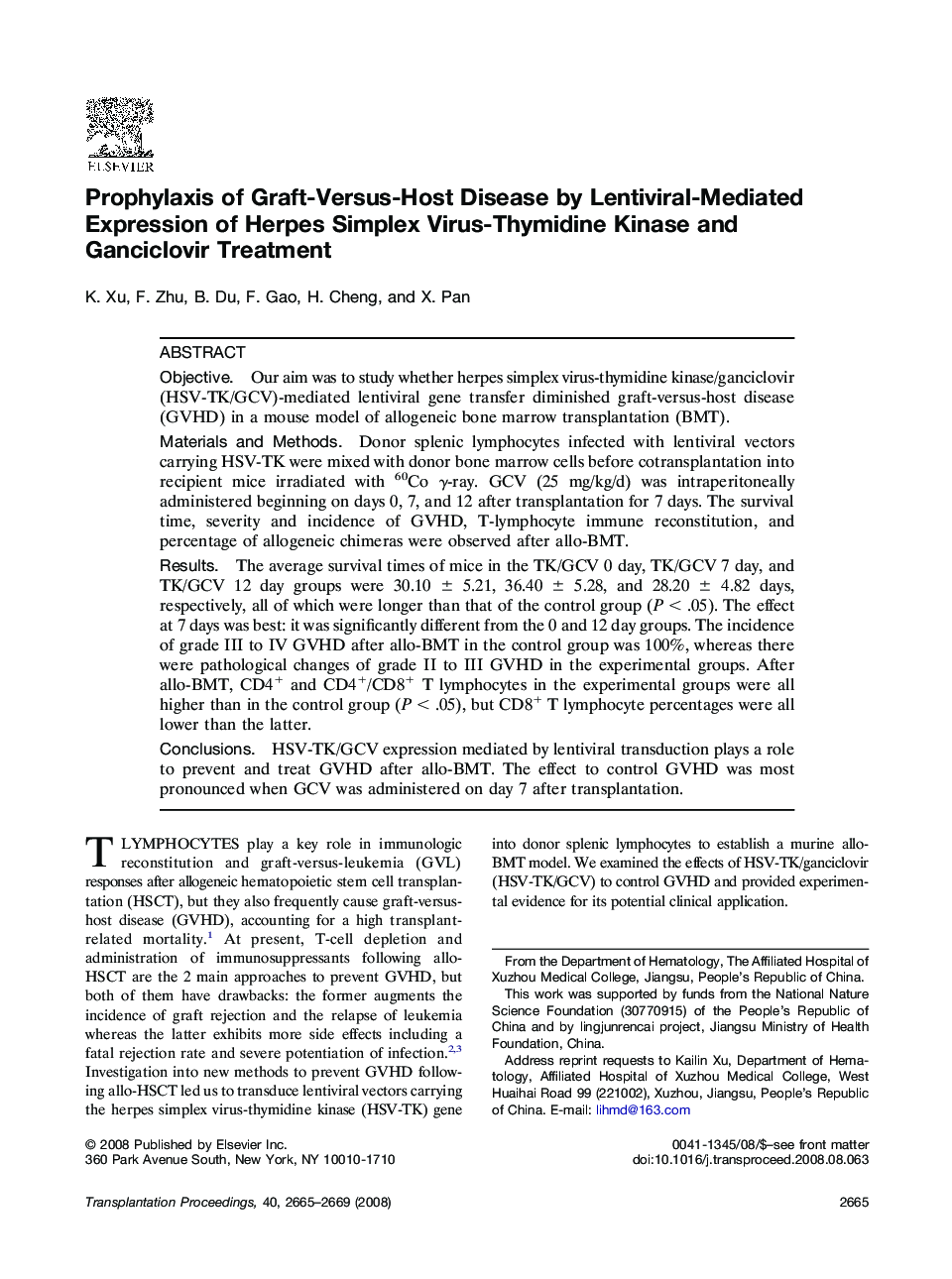| Article ID | Journal | Published Year | Pages | File Type |
|---|---|---|---|---|
| 4262027 | Transplantation Proceedings | 2008 | 5 Pages |
ObjectiveOur aim was to study whether herpes simplex virus-thymidine kinase/ganciclovir (HSV-TK/GCV)-mediated lentiviral gene transfer diminished graft-versus-host disease (GVHD) in a mouse model of allogeneic bone marrow transplantation (BMT).Materials and MethodsDonor splenic lymphocytes infected with lentiviral vectors carrying HSV-TK were mixed with donor bone marrow cells before cotransplantation into recipient mice irradiated with 60Co γ-ray. GCV (25 mg/kg/d) was intraperitoneally administered beginning on days 0, 7, and 12 after transplantation for 7 days. The survival time, severity and incidence of GVHD, T-lymphocyte immune reconstitution, and percentage of allogeneic chimeras were observed after allo-BMT.ResultsThe average survival times of mice in the TK/GCV 0 day, TK/GCV 7 day, and TK/GCV 12 day groups were 30.10 ± 5.21, 36.40 ± 5.28, and 28.20 ± 4.82 days, respectively, all of which were longer than that of the control group (P < .05). The effect at 7 days was best: it was significantly different from the 0 and 12 day groups. The incidence of grade III to IV GVHD after allo-BMT in the control group was 100%, whereas there were pathological changes of grade II to III GVHD in the experimental groups. After allo-BMT, CD4+ and CD4+/CD8+ T lymphocytes in the experimental groups were all higher than in the control group (P < .05), but CD8+ T lymphocyte percentages were all lower than the latter.ConclusionsHSV-TK/GCV expression mediated by lentiviral transduction plays a role to prevent and treat GVHD after allo-BMT. The effect to control GVHD was most pronounced when GCV was administered on day 7 after transplantation.
